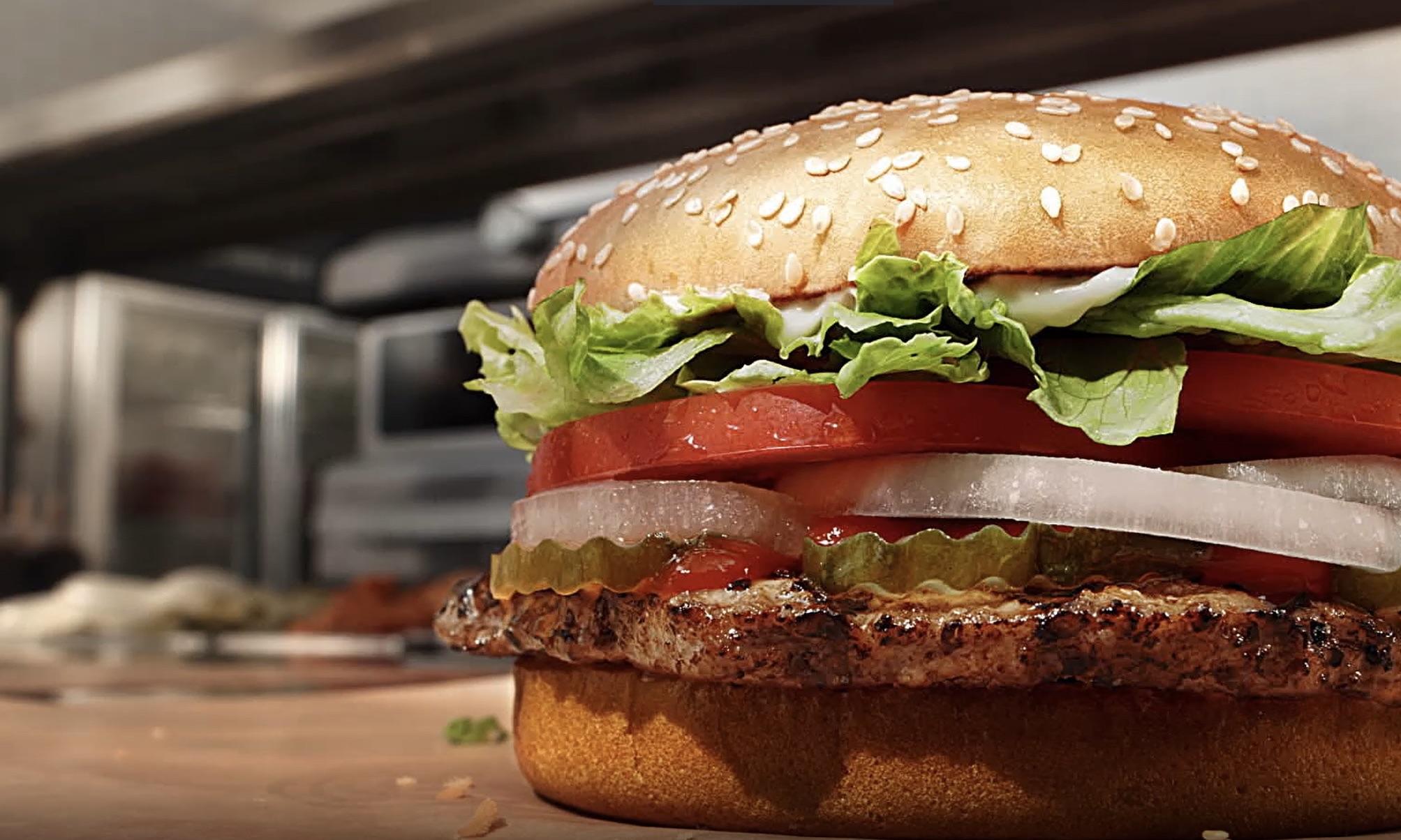A U.S. court ruled against Burger King's attempt to quash a lawsuit alleging deceptive advertising, claiming the Whopper appeared larger in ads. This decision may influence similar cases involving major fast-food chains.
U.S. District Judge Roy Altman, presiding over the case in Miami, ruled that Burger King must face legal action regarding allegations that its in-store menu boards falsely portrayed the Whopper. The judge stated that the depiction misleads reasonable customers, potentially constituting a breach of contract.
The proposed class action, representing customers who felt deceived, accuses Burger King of showcasing burgers with overflowing ingredients that give the impression of being 35% larger and containing more than double the amount of meat served.
In response, Burger King, a subsidiary of Restaurant Brands International, argued that it is not obligated to deliver burgers that look "exactly like the picture." Judge Altman insisted that it is up to the jurors to determine what reasonable people would think.
In his official decision on Friday, Judge Altman permitted the customers to proceed with claims based on negligence and unjust enrichment. However, he dismissed claims revolving around TV and online ads, as none promised a specific burger size or weight and failed to deliver on those promises.
Burger King and its legal representatives did not immediately respond to requests for comment. Similarly, the plaintiff's lawyer was not available for comment then. Prior attempts to mediate a settlement between the parties have proven unsuccessful.
This ruling holds implications beyond Burger King. Other fast-food chains, including McDonald's and Wendy's, are battling similar lawsuits in a federal court in Brooklyn, New York. The plaintiff's attorney in the ongoing case referenced Judge Altman's opinion to substantiate continuing the proceedings.
Further, Taco Bell, a subsidiary of Yum Brands, recently faced a legal challenge in the Brooklyn court. The lawsuit alleges that the popular chain sells Crunchwraps and Mexican pizzas with only half the filling advertised.
Each lawsuit seeks a minimum of $5 million in damages, shedding light on the ongoing battle between consumers and fast-food giants over truthful advertising practices.
Photo: Burger King Newsroom



 Trump Lifts 25% Tariff on Indian Goods in Strategic U.S.–India Trade and Energy Deal
Trump Lifts 25% Tariff on Indian Goods in Strategic U.S.–India Trade and Energy Deal  Global Markets Slide as AI, Crypto, and Precious Metals Face Heightened Volatility
Global Markets Slide as AI, Crypto, and Precious Metals Face Heightened Volatility  Missouri Judge Dismisses Lawsuit Challenging Starbucks’ Diversity and Inclusion Policies
Missouri Judge Dismisses Lawsuit Challenging Starbucks’ Diversity and Inclusion Policies  Tencent Shares Slide After WeChat Restricts YuanBao AI Promotional Links
Tencent Shares Slide After WeChat Restricts YuanBao AI Promotional Links  SoftBank Shares Slide After Arm Earnings Miss Fuels Tech Stock Sell-Off
SoftBank Shares Slide After Arm Earnings Miss Fuels Tech Stock Sell-Off  Weight-Loss Drug Ads Take Over the Super Bowl as Pharma Embraces Direct-to-Consumer Marketing
Weight-Loss Drug Ads Take Over the Super Bowl as Pharma Embraces Direct-to-Consumer Marketing  Prudential Financial Reports Higher Q4 Profit on Strong Underwriting and Investment Gains
Prudential Financial Reports Higher Q4 Profit on Strong Underwriting and Investment Gains  Stuck in a creativity slump at work? Here are some surprising ways to get your spark back
Stuck in a creativity slump at work? Here are some surprising ways to get your spark back  Uber Ordered to Pay $8.5 Million in Bellwether Sexual Assault Lawsuit
Uber Ordered to Pay $8.5 Million in Bellwether Sexual Assault Lawsuit  Supreme Court Tests Federal Reserve Independence Amid Trump’s Bid to Fire Lisa Cook
Supreme Court Tests Federal Reserve Independence Amid Trump’s Bid to Fire Lisa Cook  Instagram Outage Disrupts Thousands of U.S. Users
Instagram Outage Disrupts Thousands of U.S. Users  Bank of Japan Signals Readiness for Near-Term Rate Hike as Inflation Nears Target
Bank of Japan Signals Readiness for Near-Term Rate Hike as Inflation Nears Target  Trump Backs Nexstar–Tegna Merger Amid Shifting U.S. Media Landscape
Trump Backs Nexstar–Tegna Merger Amid Shifting U.S. Media Landscape  Once Upon a Farm Raises Nearly $198 Million in IPO, Valued at Over $724 Million
Once Upon a Farm Raises Nearly $198 Million in IPO, Valued at Over $724 Million  SpaceX Prioritizes Moon Mission Before Mars as Starship Development Accelerates
SpaceX Prioritizes Moon Mission Before Mars as Starship Development Accelerates 































